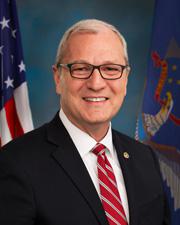0
0
0
Volunteer First Responder Housing Act
3/12/2024, 5:09 PM
Summary of Bill S 1988
Bill 118 s 1988, also known as the Volunteer First Responder Housing Act, is a piece of legislation currently being considered by the US Congress. The purpose of this bill is to provide housing assistance to volunteer first responders who serve in rural and underserved communities.
The bill recognizes the important role that volunteer first responders play in ensuring the safety and well-being of their communities. These individuals often face challenges in finding affordable housing, especially in areas where the cost of living is high. The Volunteer First Responder Housing Act aims to address this issue by providing grants to eligible organizations that can be used to construct or renovate housing facilities for volunteer first responders.
In order to qualify for assistance under this bill, organizations must demonstrate that they serve a rural or underserved community and that they have a high need for housing assistance for their volunteer first responders. The grants provided under the Volunteer First Responder Housing Act can be used for a variety of purposes, including the construction of new housing units, the renovation of existing housing facilities, and the provision of essential amenities such as utilities and security systems. Overall, the Volunteer First Responder Housing Act seeks to support and recognize the valuable contributions of volunteer first responders by ensuring that they have access to safe and affordable housing. By addressing the housing needs of these individuals, the bill aims to strengthen the capacity of rural and underserved communities to respond to emergencies and protect the well-being of their residents.
The bill recognizes the important role that volunteer first responders play in ensuring the safety and well-being of their communities. These individuals often face challenges in finding affordable housing, especially in areas where the cost of living is high. The Volunteer First Responder Housing Act aims to address this issue by providing grants to eligible organizations that can be used to construct or renovate housing facilities for volunteer first responders.
In order to qualify for assistance under this bill, organizations must demonstrate that they serve a rural or underserved community and that they have a high need for housing assistance for their volunteer first responders. The grants provided under the Volunteer First Responder Housing Act can be used for a variety of purposes, including the construction of new housing units, the renovation of existing housing facilities, and the provision of essential amenities such as utilities and security systems. Overall, the Volunteer First Responder Housing Act seeks to support and recognize the valuable contributions of volunteer first responders by ensuring that they have access to safe and affordable housing. By addressing the housing needs of these individuals, the bill aims to strengthen the capacity of rural and underserved communities to respond to emergencies and protect the well-being of their residents.
Read the Full Bill
Current Status of Bill S 1988
Bill S 1988 is currently in the status of Bill Introduced since June 14, 2023. Bill S 1988 was introduced during Congress 118 and was introduced to the Senate on June 14, 2023. Bill S 1988's most recent activity was Read twice and referred to the Committee on Banking, Housing, and Urban Affairs. as of June 14, 2023
Bipartisan Support of Bill S 1988
Total Number of Sponsors
1Democrat Sponsors
1Republican Sponsors
0Unaffiliated Sponsors
0Total Number of Cosponsors
6Democrat Cosponsors
2Republican Cosponsors
4Unaffiliated Cosponsors
0Policy Area and Potential Impact of Bill S 1988
Primary Policy Focus
Housing and Community DevelopmentPotential Impact Areas
- First responders and emergency personnel
- Government lending and loan guarantees
- Housing and community development funding
- Housing finance and home ownership
- Low- and moderate-income housing
- Rural conditions and development
- Social work, volunteer service, charitable organizations
Alternate Title(s) of Bill S 1988
Volunteer First Responder Housing Act
Volunteer First Responder Housing Act
A bill to expand eligibility for certain housing programs for qualified volunteer first responders.
Comments
Sponsors and Cosponsors of S 1988
Latest Bills
ADS for Mental Health Services Act
Bill S 414December 10, 2025
ASCEND Act
Bill S 1437December 10, 2025
Reliable Federal infrastructure Act
Bill HR 4690December 10, 2025
SHOWER Act
Bill HR 4593December 10, 2025
Dismissing the election contest relating to the office of Representative from the Fourteenth Congressional District of Florida.
Bill HRES 312December 10, 2025
Dismissing the election contest relating to the office of Representative from the Thirtieth Congressional District of Texas.
Bill HRES 311December 10, 2025
Dismissing the election contest relating to the office of Representative from the at-large Congressional District of Alaska.
Bill HRES 310December 10, 2025
Dismissing the election contest relating to the office of Representative from the Twenty-eighth Congressional District of Texas.
Bill HRES 309December 10, 2025
Dismissing the election contest relating to the office of Representative from the Fourteenth Congressional District of Florida.
Bill HRES 308December 10, 2025
To designate the facility of the United States Postal Service located at 300 Macedonia Lane in Knoxville, Tennessee, as the "Reverend Harold Middlebrook Post Office Building".
Bill HR 1372December 10, 2025
Volunteer First Responder Housing Act
Bill HR 4787January 31, 2024



